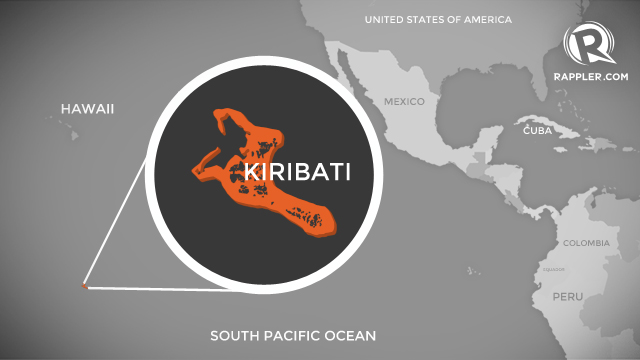SUMMARY
This is AI generated summarization, which may have errors. For context, always refer to the full article.

WELLINGTON, New Zealand – A Pacific islander’s bid to become the world’s first climate change refugee failed Tuesday, November 26, with a New Zealand judge describing his case as “unconvincing”.
Lawyers for Ioane Teitiota, 37, argued that New Zealand immigration authorities should not deport him, even though his visa had expired, because rising seas were threatening his low-lying homeland of Kiribati in the central Pacific.
The difficulties Teitiota and his family would encounter in Kiribati – which consists of more than 30 coral atolls, most only a few meters above sea level – meant they should be recognized as refugees, the lawyers said.
In a written ruling handed down on Tuesday, High Court judge John Priestley acknowledged that Kiribati was suffering environmental degradation attributable to climate change, including storm surges, flooding and water contamination.
But he said that under the internationally recognized UN Refugee Convention a refugee must fear persecution if they returned to their homeland, a criteria Teitiota did not meet.
“The economic environment of Kiribati might certainly not be as attractive to the applicant and his fellow nationals as the economic environment and prospects of Australia and New Zealand,” he said.
“But… his position does not appear to be different from that of any other Kiribati national.”
The judge rejected the argument from Teitiota’s legal team that he was being “persecuted passively” by the environment because climate change was a threat to him that the Kiribati government was powerless to control.
“Novel and optimistic though these submissions are, they are unconvincing and must fail,” Priestley wrote.
“On a broad level, were they to succeed and be adopted in other jurisdictions, at a stroke, millions of people who are facing medium-term economic deprivation, or the immediate consequences of natural disasters or warfare, or indeed presumptive hardships caused by climate change, would be entitled to protection under the Refugee Convention.”
He said there had been numerous similar claims under international law for climate change refugee status by people from low-lying countries such as Tonga, Fiji and Bangladesh, none of which had succeeded.
“It is not for the High Court of New Zealand to alter the scope of the Refugee Convention in that regard,” he said. “Rather that is the task, if they so choose, of the legislatures of sovereign states.”
Kiribati is among a number of island states – including Tuvalu, Tokelau and the Maldives – the UN Human Rights Commission is concerned could become “stateless” due to climate change.
Kiribati’s government has raised the prospect of relocating the entire population or building man-made islands to rehouse them if predictions the sea will rise by one meter by the end of the century prove accurate.
It has also moved to buy 2,000 hectares (5,000 acres) of land in Fiji to act as a farm for Kiribati if salt-water pollution means the islands in the former British colony can no longer produce crops.
Teitiota’s lawyer was not immediately available to comment on the ruling. – Rappler.com
Add a comment
How does this make you feel?
There are no comments yet. Add your comment to start the conversation.